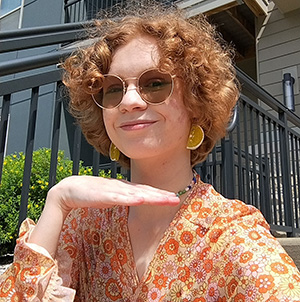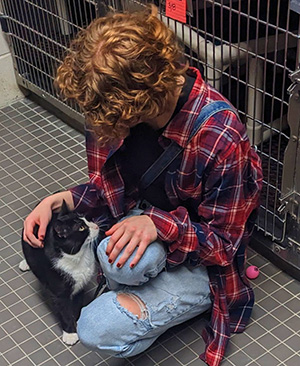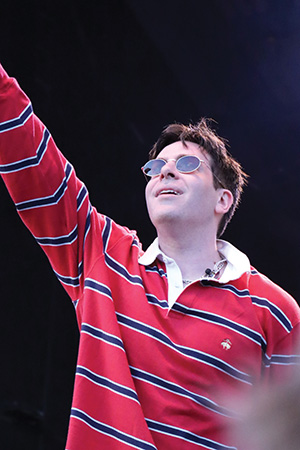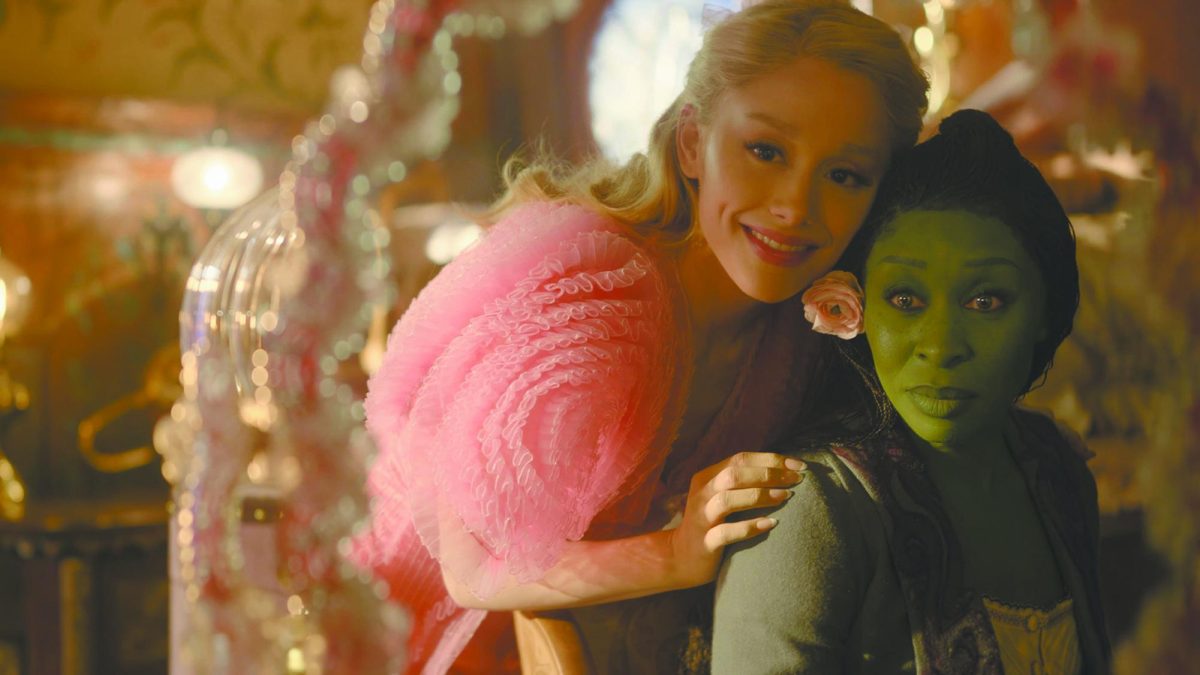“Wicked: Part 1,” directed by John M. Chu and adapted from the 1995 novel by Gregory Maguire, hit theaters in the U.S. on Nov. 22 and broke records by becoming the highest grossing musical adaptation of all time, a title previously held by “Mama Mia” (Phyllida Lloyd).
The film, bringing in $697 million worldwide, garnered much attention and support on social media, quickly becoming a success. Before we review the film, it is necessary to look at the past that came before and led up to 2024’s “Wicked.”
Gregory Maguire’s novel, “Wicked,” is based on returning to the characters and setting from “The Wizard of Oz,” but delving into Elphaba, the Wicked Witch of the West’s backstory. Through Elphaba’s time at Shiz University, she forms an unlikely friendship with Galinda, who will go on to become Glinda the Good.
Maguire’s novel became adapted into the musical, “Wicked,” which grew to become one of the most successful musicals on Broadway. The film adaption has followed in the musical’s footsteps in terms of attracting success by hiring top-tier talent, with actresses Cynthia Erivo as Elphaba and Ariana Grande as Glinda.
One of the most interesting creative changes or enhancements that “Wicked” brings to “The Wizard of Oz,” is its inherently political nature. Themes of social ostracization due to being labeled “different” from whatever society defines as an ideal standard, oppressive systems designed to keep a small minority in power, and the act of silencing/vilifying those who dare to criticize or speak out against a flawed system, remain eerily in line with current times and events.
In fact, these themes are what contribute to the film’s timelessness or its ability to be relevant in 1995, all the way up to 2025.
The beauty of the film adaptation is that it differs from the novel in a notable way by being friendly towards younger audiences. This conscious decision, to erase some of the scenes in the novel geared towards adults, may have been due to anticipation that children would be interested in a film with two female characters in elaborate, recognizable costumes.
Whatever the reason, the film teaches powerful lessons to all audiences, whether you’re an adult who could benefit from relearning fundamental themes of humanity or a child being gently introduced to injustices in the world, and to always combat unfair treatment they will undoubtedly come across throughout life.
The primary conflict that Elphaba, our misunderstood protagonist, faces is being discriminated against based on her green skin. The line uttered by Pfannee (Bowen Yang), a friend of Glinda’s, with a dark irony is “I don’t see color,” regarding Elphaba’s greenness. The fact that Wicked is a musical adds further complexity, with the delivery of serious messages finding an unlikely outlet through an unassuming, feel-good soundtrack.
Other films and musicals have embodied similar themes of social issues or portrayed popular tropes, such as the underdog who starts their story navigating the world alone and enmeshed in struggle, to eventually find strength in their journey and become who they are destined to be, for wickedness or for good. Yet there are few who have been able to execute communicating these themes in as much detail and lightheartedness as “Wicked” has been able to do.
The balance of humor and severity, tenderness and heartbreak, creates an emotionally touching film that is sure to resonate with even the most skeptical viewer. Ironically, almost everyone can name a time they felt like an outsider or misunderstood for simply being who they are.
“Wicked” touches on important themes that continue to be relevant and there’s no question that the film is deserving of all its praise and success.
‘Wicked’ artfully speaks to the outsider in all of us
August Bengry, Staff Writer
January 21, 2025
Cynthia Erivo and Ariana Grande use a mirror during the song “Popular” in “Wicked.” (Universal Pictures / Zuma Press / TNS)
Story continues below advertisement
























